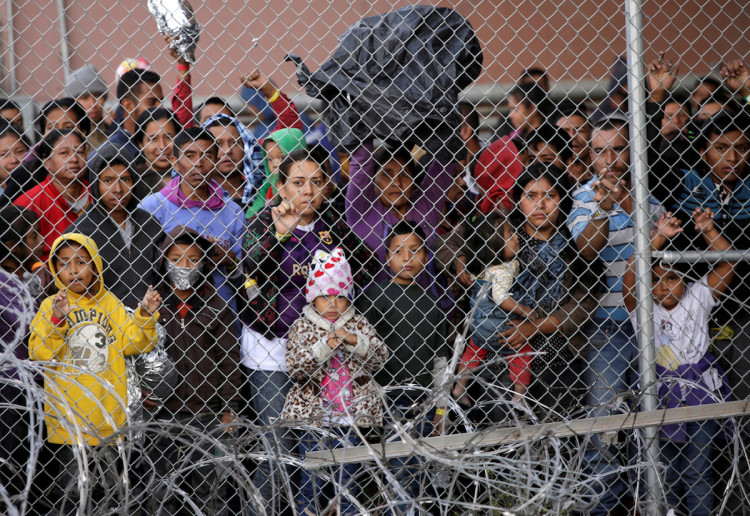A surge of hundreds of migrants from various countries, including Africa, Central America, Colombia, and Venezuela, overwhelmed Texas National Guard soldiers at the U.S.-Mexico border in El Paso on Thursday, March 21. The incident has reignited the debate over immigration policies and the use of force to deter illegal border crossings.
According to videos taken at the scene, the migrants breached concertina wire barriers erected by the Texas National Guard along the Rio Grande, causing a "riot" as they attempted to reach the border wall and surrender to U.S. Border Patrol agents for processing. The surge began around 11 a.m. local time and lasted for several hours.
Texas Governor Greg Abbott, in a post on X (formerly Twitter), stated, "The TX National Guard & Dept. of Public Safety quickly regained control & are redoubling the razor wire barriers. DPS is instructed to arrest every illegal immigrant involved for criminal trespass & destruction of property."
The incident has drawn strong reactions from officials and social media users, with some calling for the use of lethal force to protect the border. Charlie Kirk, founder and president of Turning Point USA, wrote on X, "Ultimately, having a border means being willing to have armed men at the border willing to use force to stop those attempting to cross it."
However, the use of lethal force remains a contentious issue. In February, Representative Morgan Luttrell introduced the Defend Our Borders from Armed Invaders Act in the U.S. House, which would authorize the National Guard to escalate force as necessary to repel armed individuals attempting to enter the U.S. illegally. A spokesperson for the congressman clarified that the legislation applies only to migrants carrying lethal weapons.
The breach comes amid an ongoing legal battle over Texas Senate Bill 4 (S.B. 4), which would allow state and local police to arrest and deport individuals suspected of being in the country without legal authorization. The 5th Circuit Court of Appeals recently issued a hold on the law, just hours after the U.S. Supreme Court paved the way for its implementation.
As of 3 p.m. local time on Thursday, all migrants from the group had been moved from the site and taken into custody by U.S. Border Patrol agents. They were transported to the central processing station to be processed under Title 8 immigration law, which outlines procedures for handling migrants at the border and allows them to lodge asylum claims.
A U.S. Customs and Border Protection (CPB) spokesperson in El Paso told Newsweek, "There are consequences to crossing the border illegally, and CBP continues to enforce United States immigration laws. Individuals and families without a legal basis to remain in the U.S. are subject to removal and are subject to a minimum five-year bar on reapplying for admission and potential criminal prosecution if they subsequently reenter without authorization."
The spokesperson added, "No one should believe the lies of smugglers. Individuals and families without a legal basis to remain in the United States will be removed."
The El Paso border surge is just one example of the ongoing immigration crisis faced by the United States. Total border crossings exceeded 988,900 individuals between October and December, following a record-setting number of 2.4 million migrant encounters at the southern border in fiscal 2023-up from approximately 1.7 million in 2021.
As Texas awaits a clear legal judgment on its ability to enforce its own immigration laws, the debate over the appropriate response to illegal border crossings continues to divide the nation. Governor Abbott and other state conservatives remain committed to deterring illegal immigration, while critics argue for a more humane approach that respects the rights of asylum seekers.






